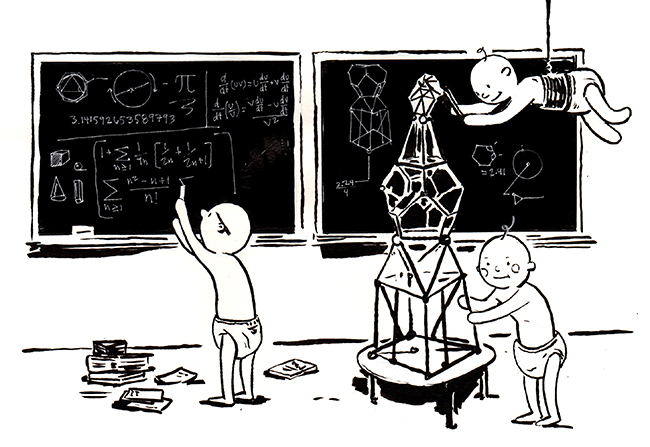ZEITGUIDE TO PARENTHOOD

The New York Times recently noted, in a piece written by Alexis Soloski, an apparent trend in media these days. “The Letdown,” “Motherland,” “Smilf” and “Catastrophe” are among a spate of shows paying respect to the less glamorous sides of parenting. Postpartum depression, “mommy brain” or the unique challenges of being an older first time parent feature prominently.
These honest takes on parenthood are finding resonance at a time when parents themselves are undergoing changes. So, what’s so unique about parents today?
—Getting older for one: The peak age range for American mothers has gone up to 30-to-34, up from 25-to-29 just a few years ago. The average age of first time American dads rose 3.5 years from 1972 to 2015, up to 30.9. More women over 35 are having children, while births for women under 20 have steeply declined.
—Saying I-do later: More young people are prioritizing completing their education and beginning a career before settling down. The average age of first marriage for women and men in 2017 was 27.4 and 29.5, respectively. That’s up sharply from 1990, when the average age was 23 for women and 26 for men. (And especially from 1960, when the average was 20 for women and 22 for men.) This delay means better educated and more financially secure parents, but also a greater potential for health risks among mothers.
—Skipping I-do altogether: More mothers are forgoing marriage in the first place. The share of never-married women with children continues to rise, across all educational levels, and more than doubled for women with some college education. As of 2014, 45 percent of never married U.S. women in their 40s are mothers.
—Grandparents’ role expands: Additionally, more and more grandparents are also raising their grandchildren. Since 1970, the proportion of children in the U.S. raised by grandparents has doubled, often due to parents’ struggles with substance abuse or mental illness.
Delaying parenthood has lead more parents to take an exacting approach to preparing for children. “[People] think, ‘OK, this is like going to school and working,’” says Alison Gopnik, author of the recent parenting book The Gardener and the Carpenter. “’If I can just find the right manual or the right secret handbook, I’m going to succeed at this task the same way that I succeeded in my classes or I succeeded at my job.’”
Gopnik divides parents into two camps: carpenters and gardeners. Carpenters approach parenting with the mindset that if they can just do the exact right things with their children, they can mold them into successful adults. Gardeners are more hands off: Instead of offering direction, the goal is to give kids the space to explore on their own.
It’s easy to see how those two approaches were born out of how today’s parents were raised. Older parents likely remember the days of getting thrown out of the house and being told to come back when the street lights came on. The younger generation more likely grew up with so-called helicopter parents. Now, today’s parents seek the right balance between being there to guide their kids along and giving them enough space to learn on their own.
Meantime, that’s making for good TV to watch for all of us.
Want to learn more about ongoing business and cultural transformation?
#GetSmartQuick with ZEITGUIDE 2018.
Inquire about our custom offerings.
Sign up to receive our weekly newsletter.
